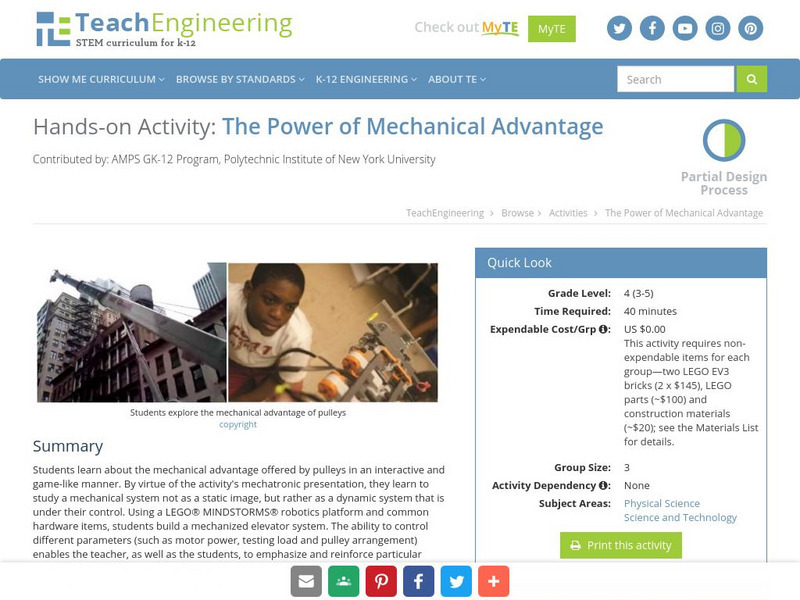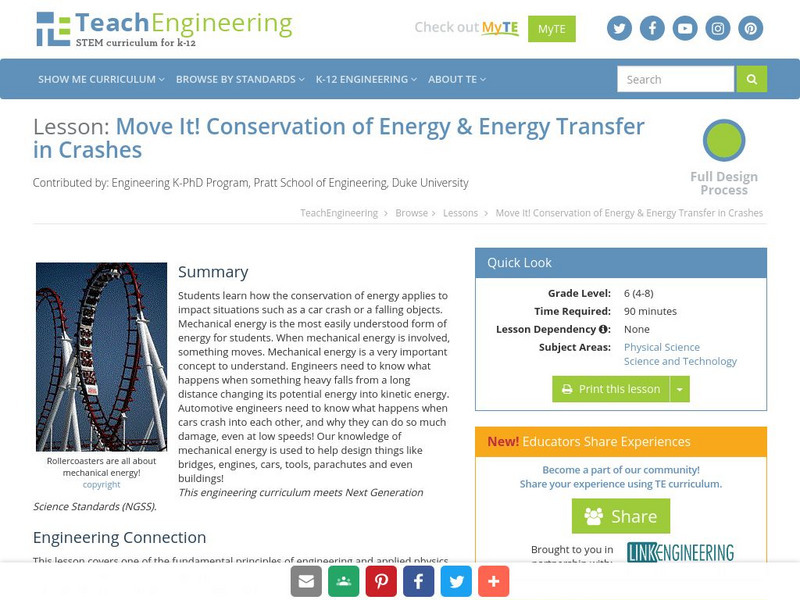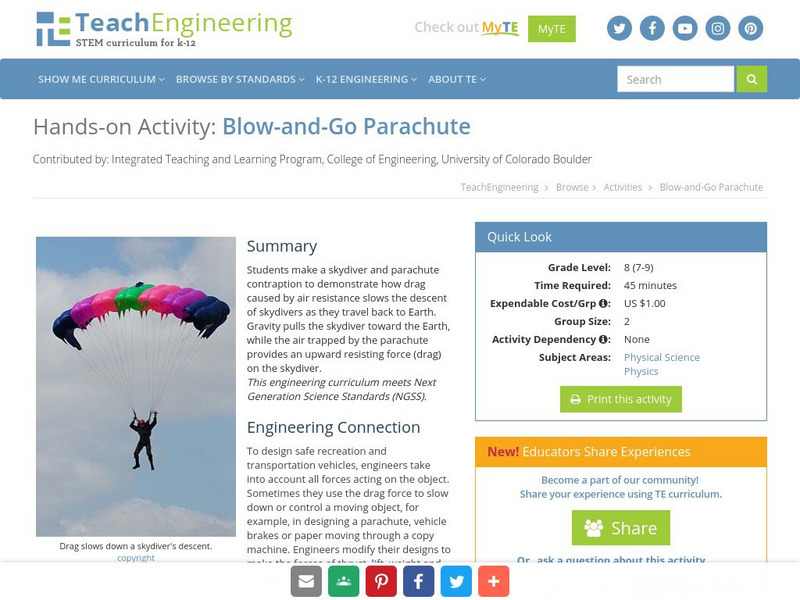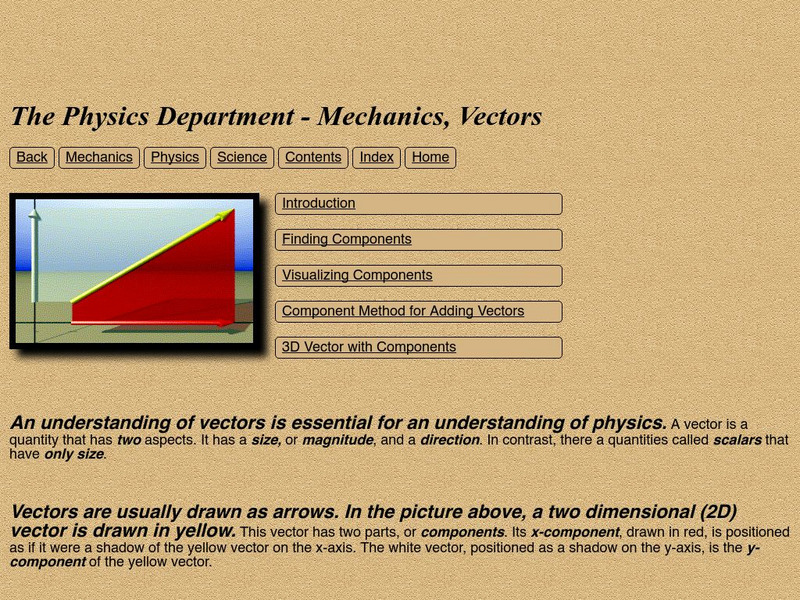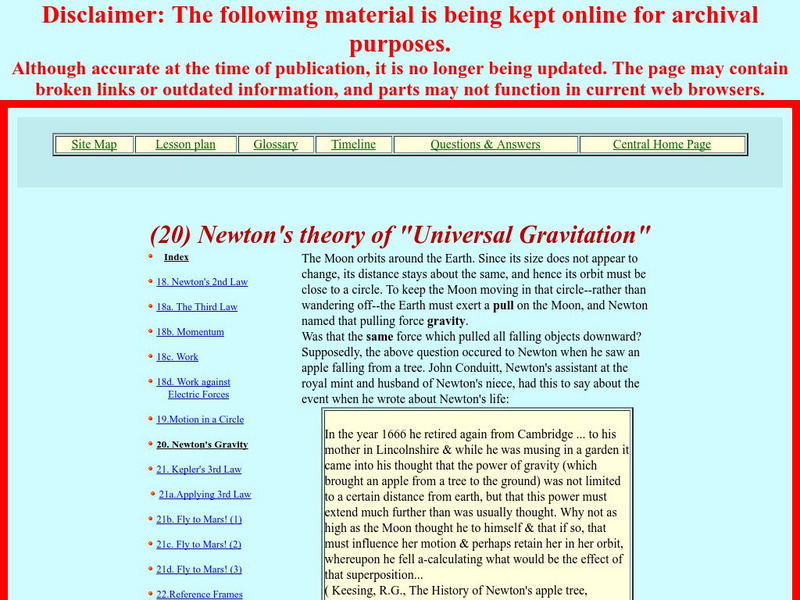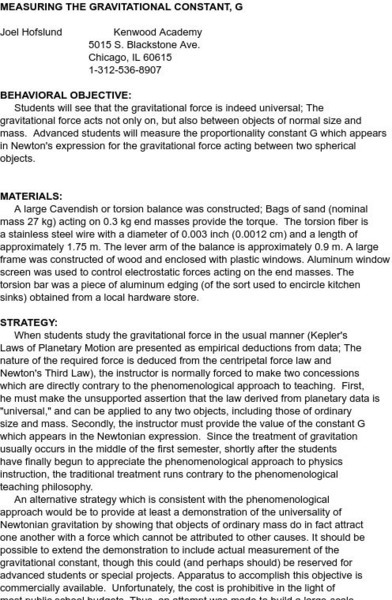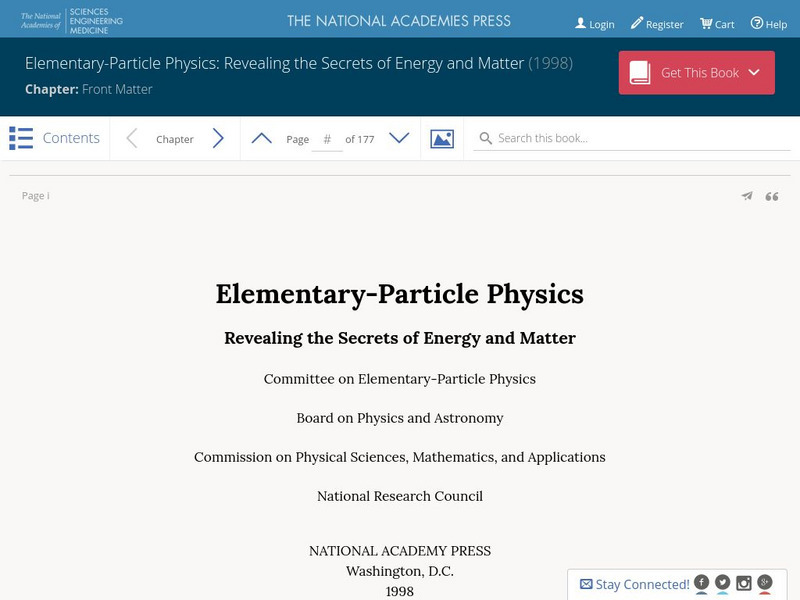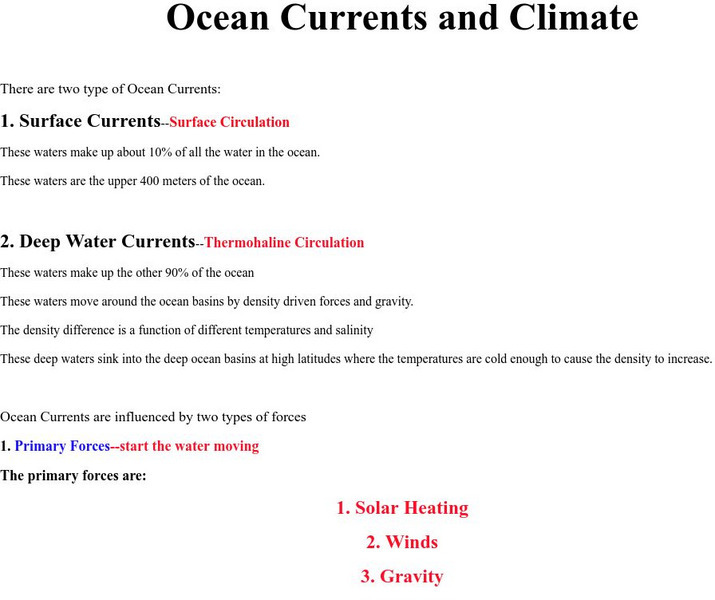TeachEngineering
Teach Engineering: The Power of Mechanical Advantage
Students learn about the mechanical advantage offered by pulleys in an interactive and game-like manner. By virtue of the activity's mechatronic presentation, they learn to study a mechanical system not as a static image, but rather as a...
TeachEngineering
Teach Engineering: The Stress That You Apply
Students learn about contact stress and its applications in engineering. They are introduced to the concept of heavy loads, such as buildings, elephants, people and traffic, and learn how those heavy loads apply contact stress. Through...
TeachEngineering
Teach Engineering: Move It!
Mechanical energy is the most easily understood form of energy for young scholars. When there is mechanical energy involved, something moves. Mechanical energy is a very important concept to understand. Engineers need to know what...
Sophia Learning
Sophia: Space Science: Bill Nye: Orbiting Marbles
Created to teach students of the 21st century, SOPHIA is bringing outer space straight to your fingertips. Become the commander of your own learning experiences as you take part in this interactive experiment.
Science Education Resource Center at Carleton College
Serc: Newton's Second: Having a Ball With Motion
Students will create a gravity ball launcher to demonstrate their understanding of mass, force, momentum, and motion. The students will use critical thinking, measurement, and observation and analysis of data to make changes and improve...
Khan Academy
Khan Academy: What Is Weight?
This article on weight will help you prepare for the AP Physics test. Included are example problems to help you practice.
TeachEngineering
Teach Engineering: Blow and Go Parachute
Students make a skydiver and parachute contraption to demonstrate how drag caused by air resistance slows the descent of skydivers as they travel back to Earth. Gravity pulls the skydiver toward the Earth, while the air trapped by the...
TeachEngineering
Teach Engineering: What Makes Airplanes Fly?
Students begin to explore the idea of a force. To further their understanding of drag, gravity and weight, they conduct activities that model the behavior of parachutes and helicopters. An associated literacy activity engages the class...
Khan Academy
Khan Academy: Testing New Suture Material
This passage will test your knowledge on the force of tension when testing a new suture material using this five-question quiz.
Khan Academy
Khan Academy: What Is Newton's Third Law?
This article offers a description and real-life examples of Newton's Third Law. Practice questions are included to test your knowledge!
TED Talks
Ted: Ted Ed: Free Falling in Outer Space
With a little help from Sir Isaac Newton, Matt J. Carlson explains the basic forces acting on an astronaut during a free fall. [2:59]
Lawrence Berkeley National Laboratory
Berkeley Lab: La Aventura De Las Particulas
Learn the fundamentals of particles and forces with this site. Explore the paths that explain matter in the universe.
Bill Nye
Bill Nye: Penny Droplets
This tutorial by Bill Nye introduces the concept of a cohesive force through an experiment involving a penny and droplets of soapy water.
Physics Classroom
The Physics Classroom: 1 D Kinematics: The Big Misconception
An introduction to the ideas behind the misconception and misunderstanding of why all objects accelerate at the same rate. This explanation involves the concepts of force and mass.
Physics Classroom
The Physics Classroom: Static Electricity: Lesson 3: Inverse Square Law
Electrical force between two electrically charged objects is inversely related to the distance between the two objects. Investigate why this becomes the inverse square law of physics. Engage in the Coulomb's Law interactive and check...
Curated OER
Zona Land: Mechanics and Vectors
An exceptional tutorial on the topic of vectors that offers many helpful graphics, some of which are interactive.
NASA
Nasa: Newton's Theory of "Universal Gravitation"
This site, which is provided for by NASA, discusses the thinking which led Newton to understand universal gravitation.
NASA
Nasa: Vectors
This site from NASA provides an excellent tutorial on vectors and their use in physics to describe the motion of objects. Vector addition and resolution are illustrated.
Science and Mathematics Initiative for Learning Enhancement (SMILE)
Smile: Measuring the Gravitational Constant, G
A demonstration/lab idea for determining the numerical value of the universal gravitation constant using a torsion balance.
Physics Classroom
The Physics Classroom: Newton's Law of Universal Gravitation
States the equation of Newton's law of universal gravitation. States the value of G and uses the equation to solve problems.
Other
National Research Council: Elementary Particle Physics
The Committee on Elementary-Particle Physics, part of the U.S. National Research Council, presents this massive report on particle physics. It's a definitive document. Surprisingly readable, totally detailed. Start with the Table of...
PBS
Pbs Learning Media: The Ruff Ruffman Show: Teacher's Guide: Structures
Learn about structures alongside Ruff Ruffman.
University of Southern California
University of Southern California: Ocean Currents and Climate
The climate of our planet is greatly affected by Earth's oceans. Learn here about the different oceanic currents and the role those currents play on climate.
Physics Classroom
The Physics Classroom: Circular and Satellite Motion: Energy in Satellites
Through interactive practice problems and illustrated examples, students explore energy relationships for satellites.
